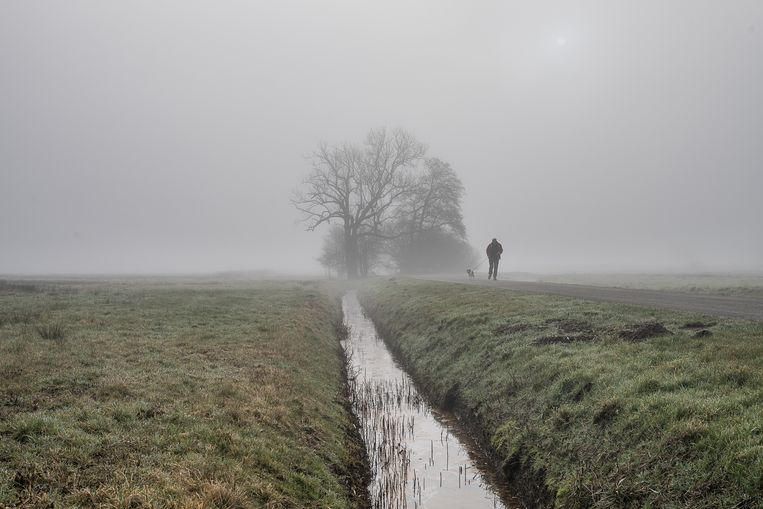
Brussels has done it again in The Hague. Mad, what MP Dirk Bosvik (CDA) called the letter in which European Commissioner Virginius Sienkevicius reminded Minister Christian van der Waal of European nitrogen rules. Bosvik colleague Peter Omtzigt (Omtzigt Group) requested all correspondence on this matter from the European Commission. Van der Waal himself was “shocked”. BBB leader Van der Plaas questioned whether the letter was genuine.
The gist of the feedback: What does Brussels think is putting us under such pressure? However, Sinkevicius did nothing extraordinary. In response to a letter from Van der Wal, he once again clarified the nitrogen rules that Holland itself had once approved. But in such matters Brussels is often presented as an automated machine, a force entirely outside of Dutch politics, as if the European Commission’s “unelected technocrats” are pouring their own rules on us. Brussels “must” things. or not allowed, such as downsizing Schiphol.
However, the European Union and Dutch politics are not separate circles. The main lines of European policy are set by the heads of government at the European Council. They decide by consensus, so the Netherlands can oppose measures it cannot live with. Laws and regulations are drawn up by the European Commission (with a Dutch European Commissioner), adopted by Councils of Ministers (with a Dutch Minister) and approved by the European Parliament (with a Dutch representative). “Brussels is often seen as something far from us, but the EU and its member states are intertwined,” says Armin Quivers, professor of European law at Leiden University.
Nature protection
The Netherlands shares the view that nature conservation is a core European value. On this basis, it has identified for itself the areas of Natura 2000 that are now affected by nitrogen. The fact that European nitrogen rules hurt the Netherlands more than other member states has a simple reason: The Netherlands is the world’s second agricultural exporter, after the United States, which has 250 times the land area. In the Netherlands, a very large amount of nitrogen is produced on a small rooftop.
For example, the Netherlands has put itself into a corner. European rules make it more difficult to get out of there. Most of the Natura 2000 regions were designated in 2003. At the time, the Netherlands was governed by the Provisional Cabinet of Balkenende I, a coalition of the CDA, VVD and LPF. Why can’t the Netherlands now, at a different time with different political relations, backtrack on its promises, for example by dramatically reducing the number of Natura 2000 regions?
This is very difficult, says Quivers. The member states of the European Union are sovereign, but they are bound by the agreements they have with each other. “This tension is very central to all forms of international collaboration,” he says. Member states make promises to each other. This in effect means that the government is bound by the agreements made by its predecessors. He says it is the price of an effective EU. The EU would become completely unworkable if all 27 member states wanted to break open European agreements after every national election.
Brexit sentiment
Whoever agrees to the European rules relinquishes part of his political space for maneuver and thus his sovereignty. In Covers’ view, this is increasingly leading to tensions. From a patriotic perspective, you can ask the question: do we have nothing left to say next? Hence the Brexit sentiment. This tension is increasing. On the one hand, the need for international cooperation is growing. The relationship with China, the war in Ukraine, climate policy, these are all problems that member states cannot solve on their own. On the other hand, politics within the member states are becoming more nationalistic and populist.
By the way, European laws are not set in stone. The Netherlands could try to change the nitrogen rules. To do this, you must find a qualified majority in Brussels, which usually means no fewer than fifteen member states representing at least sixty-five percent of Europe’s population. The chance of that is almost none. Other Member States see no reason to question the protection of nature. In addition, the European Union has shown indulgence in manure for years: Dutch farmers have been allowed to spread more than European standards allow.
sensitive
The Netherlands is often the first to criticize other member states if they do not comply with the rules. She denounced the French who let their national debt pile up, and the Hungarians who violated the rule of law. Bulgaria is denied access to the Schengen area because the country will not comply with the rules. But when the Netherlands itself is reprimanded by the European Union, it is often touchy and insulting.
When Italy asked for economic support after Corona, Minister Wopke Hoekstra said the country should have built more barriers in the good times. Now the Netherlands itself is in a similar position, as a country that has to “fix” because it has let its problems slip away. Quivers: “The EU’s perspective is: you guys saw this coming years ago, you did nothing and now you’re going to act pathetic.”

“Lifelong zombie fanatic. Hardcore web practitioner. Thinker. Music expert. Unapologetic pop culture scholar.”








